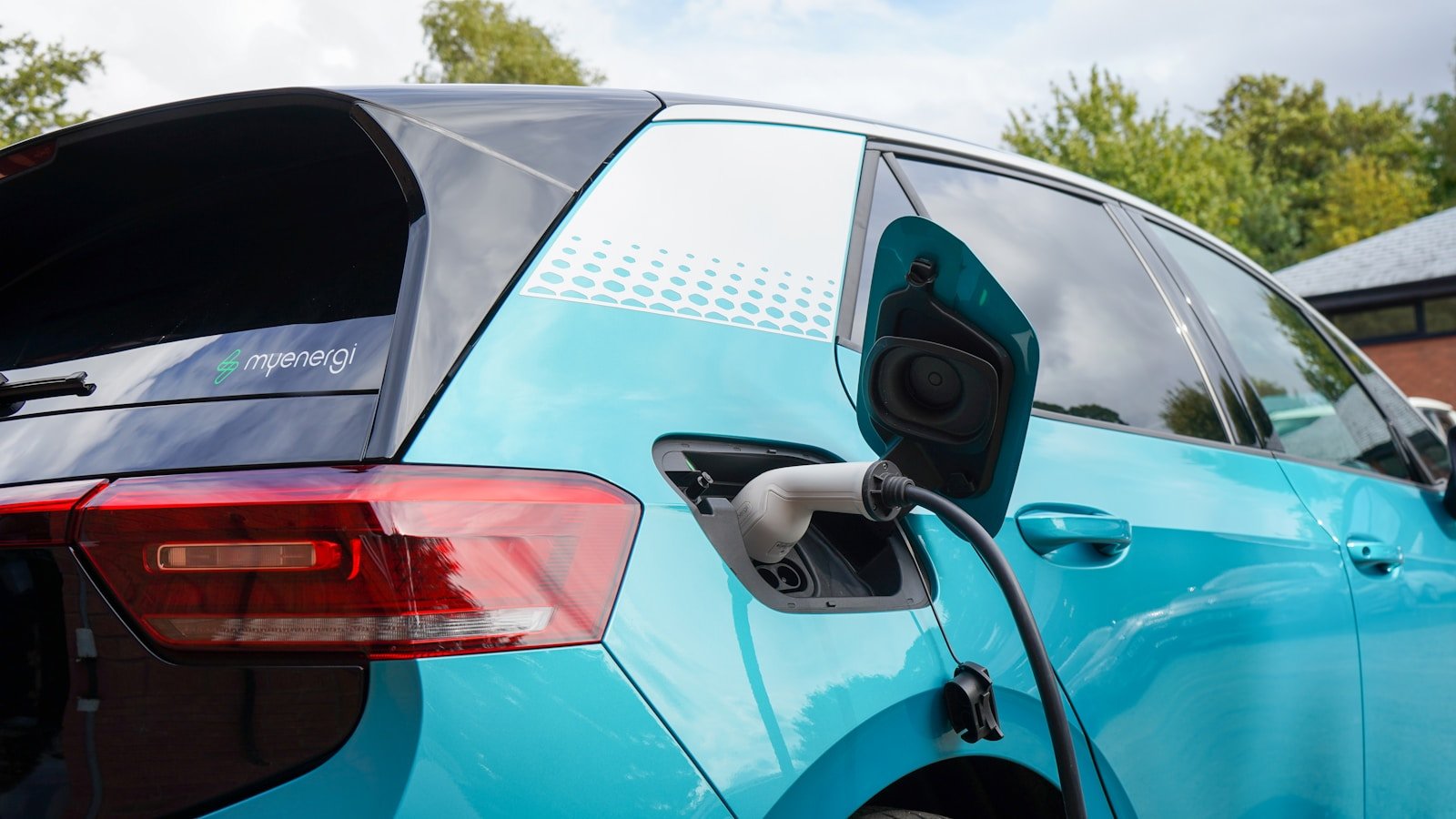Electric cars are becoming more affordable and popular. Many brands now offer budget-friendly options that don’t sacrifice quality or range. The best budget electric vehicles in 2025 provide excellent value with lower starting prices than ever before, making clean energy accessible to more drivers.
Finding the right budget EV means looking at more than just the price tag. Things like driving range, charging speed, and available tax incentives all matter too. Models like the Nissan Leaf and Chevrolet Bolt EV have shown that affordable electric cars can still deliver good performance and features.
Electric vehicles (EVs) are becoming more affordable each year — and 2025 marks a turning point for budget-friendly electrification. Thanks to improved battery technology, expanded charging infrastructure, and federal incentives, owning an EV no longer means paying luxury-level prices.
Below are the top affordable EVs of 2025, ranked by value, range, and overall practicality.
🥇 1. Nissan Leaf (2026 model year)
- Starting Price: $28,140 (before incentives)
- Range: 149 miles (standard) / 212 miles (Leaf SV Plus)
- Battery: 40–60 kWh
- Charging: 50 kW DC fast charging
- Highlights:
- Still the cheapest new EV on the U.S. market (Coltura)
- Proven reliability and easy maintenance
- Eligible for up to $3,750 federal tax credit
- Best for: Urban commuters who prioritize affordability and simplicity
🥈 2. Hyundai Kona Electric (2025)
- Starting Price: $32,675
- Range: Up to 261 miles
- Battery: 64.8 kWh
- Charging: 100 kW DC fast charging (10–80% in ~45 min)
- Highlights:
- Stylish redesign and intuitive tech interface
- Spacious interior for a subcompact SUV
- Excellent warranty (10 years / 100,000 miles battery coverage)
- Best for: Drivers seeking an efficient, comfortable small SUV
🥉 3. Chevrolet Equinox EV (2025)
- Starting Price: Around $34,995
- Range: 250–319 miles (depending on trim)
- Battery: 85 kWh
- Charging: Up to 150 kW DC fast charging
- Highlights:
- One of the best value EV SUVs in 2025 (Car and Driver)
- Eligible for full $7,500 federal tax credit
- Advanced safety and infotainment features
- Best for: Families needing range and space without a high price tag
4. Toyota bZ4X (2025)
- Starting Price: $36,000 (est.)
- Range: Up to 252 miles
- Battery: 71.4 kWh
- Charging: 150 kW DC fast charging
- Highlights:
- Toyota’s most refined EV yet
- Excellent build quality and reliability reputation
- AWD option available
- Best for: Drivers who want Toyota dependability in an EV crossover
5. Kia EV4 (2026 model year preview)
- Starting Price: Around $30,000 (expected)
- Range: 250–300 miles (projected)
- Battery: 58–77 kWh (depending on trim)
- Highlights:
- Compact crossover based on Kia’s E-GMP platform
- Expected to undercut most rivals in price
- Fast charging (10–80% in ~25 min)
- Best for: Early adopters seeking next-gen Kia tech at an affordable price
6. Hyundai Ioniq 6 (2025)
- Starting Price: $37,500
- Range: Up to 361 miles (RWD version)
- Battery: 77.4 kWh
- Charging: 800V architecture (10–80% in ~18 min)
- Highlights:
- Longest range in the budget EV class
- Sleek, aerodynamic design
- Premium interior for under $40K
- Best for: Commuters who want range and refinement
7. Ford Escape Electric (2025)
- Starting Price: $33,000 (est.)
- Range: ~250 miles
- Highlights:
- Built on Ford’s flexible EV platform
- Practical size and familiar design
- Competitive pricing with federal incentives
- Best for: Drivers transitioning from gas-powered SUVs
⚙️ Quick Comparison Table
| Model | Starting Price | Range (mi) | Charging Speed | Tax Credit Eligible |
|---|---|---|---|---|
| Nissan Leaf | $28,140 | 149–212 | 50 kW | Up to $3,750 |
| Hyundai Kona Electric | $32,675 | 261 | 100 kW | Yes |
| Chevy Equinox EV | $34,995 | 250–319 | 150 kW | $7,500 |
| Toyota bZ4X | $36,000 | 252 | 150 kW | Partial |
| Kia EV4 | ~$30,000 | 250–300 | 200 kW | TBD |
| Hyundai Ioniq 6 | $37,500 | 361 | 235 kW | $7,500 |
| Ford Escape EV | ~$33,000 | 250 | 150 kW | Yes |
💡 Buying Tips for Budget EV Shoppers
- Check Incentives:
Federal and state rebates can reduce prices by $3,750–$7,500 depending on where you live.
→ Use the DOE EV Incentive Finder. - Consider Used EVs:
Models like the Chevy Bolt EUV, Kia Niro EV, and Tesla Model 3 (2021–2023) are excellent used options under $25K (InsideEVs). - Prioritize Range for Your Needs:
If you mostly drive in the city, a 150–200 mile range is sufficient — don’t overpay for extra capacity. - Plan for Home Charging:
Installing a Level 2 charger at home can save time and money in the long run.
🚗 Final Thoughts
The EV market in 2025 offers more affordable and capable options than ever before.
If you’re on a budget:
- The Nissan Leaf remains the best entry-level EV.
- The Hyundai Kona Electric delivers the best all-around value.
- The Chevy Equinox EV offers space and range for families at a fair price.
With incentives and improved charging networks, 2025 is the perfect time for cost-conscious drivers to make the switch to electric.
Sources:
- Car and Driver – Cheapest Electric Vehicles for 2025
- CSQ World – Most Affordable EVs of 2025
- Coltura – Least Expensive Electric Cars in 2025
- InsideEVs – Best Used EVs in 2025
1. 2025 Nissan Leaf
The 2025 Nissan Leaf stands out as the only electric vehicle under $30,000 in today’s market. With a starting price of $29,280, it offers budget-conscious buyers an entry point into electric driving.
This compact EV comes in two versions. The base model provides an estimated range of 149 miles on a full charge, while the upgraded SV Plus version extends this to 212 miles.
Despite its budget-friendly price tag, the Leaf doesn’t feel like a cheap car. Many drivers find it bigger and nicer than comparable models like the Bolt, though some consider its technology somewhat dated.
The interior of the Leaf offers surprising comfort. It features roomy cabin space and comfortable seats, making it pleasant for daily commuting.
One downside potential buyers should note is its slow charging rate. This may impact those planning longer trips or needing quick battery top-ups.
The Leaf includes instant acceleration, a key benefit of electric vehicles. This makes city driving responsive and enjoyable.
Practical features haven’t been overlooked. The Leaf provides plenty of cargo space, making it useful for shopping trips and small hauling tasks.
For those interested in the top-tier model, the LEAF SV PLUS starts at $37,330. This represents a significant jump from the base price but brings extended range and additional features.
The 2025 model continues the Leaf’s legacy as a pioneer in affordable electric vehicles. While newer competitors offer more range and faster charging, none match its entry-level price point.
2. 2025 Hyundai Kona Electric
The 2025 Hyundai Kona Electric stands out as one of the cheapest electric vehicles on the market today. With a starting price of $34,270, it offers good value for budget-conscious shoppers looking to go electric.
This compact SUV comes with impressive range capabilities. The Kona Electric can travel up to 261 miles on a single charge according to EPA estimates. This range makes it practical for daily commuting and occasional longer trips without causing range anxiety.
Weight matters for efficiency in electric vehicles. The Kona Electric weighs under 3,600 pounds, making it lighter than many bulkier electric SUVs on the market. This modest weight helps with both range and handling.
Hyundai offers the Kona Electric in several trim levels. The price can reach up to $42,445 for higher trims with added features and options. Buyers can choose the configuration that best fits their needs and budget.
Size is another selling point for this model. Unlike many oversized electric vehicles flooding the market, the Kona Electric maintains a reasonable footprint. This makes it easier to park and maneuver in tight city spaces.
The 2025 model features an updated design with modern styling cues. It offers the elevated look of an SUV while keeping proportions manageable for everyday use. The interior provides comfortable seating for passengers without excessive bulk.
Tech features come standard in the Kona Electric. The vehicle includes Hyundai’s latest infotainment system and driver assistance technologies. These features add value to the package without dramatically increasing the price.
For buyers concerned about the transition to electric driving, the Kona Electric offers a user-friendly experience. The controls and driving dynamics feel familiar to those coming from gas-powered vehicles. This helps make the switch to electric driving less intimidating.
As gas prices fluctuate, the Kona Electric provides cost savings through efficient electric operation. The reasonable purchase price combined with lower operating costs makes it an attractive option for budget-minded shoppers.
3. 2025 Chevrolet Equinox EV
The 2025 Chevrolet Equinox EV stands out as one of the few electric vehicles with a starting price under $35,000. This budget-friendly EV begins at just $33,600, making it a top choice for cost-conscious buyers looking to go electric.
Chevrolet offers the Equinox EV in different trim levels, with prices ranging from $34,995 for the base LT model up to $44,795 for the premium RS trim. Buyers can also add comfort and safety packages to enhance their driving experience.
One of the most impressive features of the Equinox EV is its estimated range of 319 miles on a full charge. This long range helps reduce anxiety about running out of power during daily commutes or longer trips.
Storage space is another strong point for this electric SUV. With 57.2 cubic feet of cargo space, the Equinox EV offers plenty of room for groceries, luggage, or gear for weekend adventures.
Buyers will be happy to know the 2025 Equinox EV qualifies for the $7,500 federal tax credit, which can be applied at the time of purchase. This tax credit brings the effective price down to around $27,000 for the base model, making it even more affordable.
The Equinox EV comes in both front-wheel drive and all-wheel drive options. This gives buyers the freedom to choose based on their local climate and driving needs.
Chevy designed the Equinox EV with a modern, sleek look that doesn’t scream “electric vehicle.” Its normal SUV appearance will appeal to buyers who want an EV without drawing extra attention.
Inside, drivers will find a mix of digital displays and practical controls. The interior focuses on comfort while including the tech features modern drivers expect.
Many auto experts consider the 2025 Equinox EV a game-changer in the budget EV market. Its combination of affordable price, good range, and practical design makes it worth considering for anyone shopping for an electric vehicle.
The Equinox EV faces competition from other affordable electric options, but its Chevrolet badge gives buyers the comfort of a well-known brand with an established service network.
4. 2025 Toyota bZ4X
The 2025 Toyota bZ4X brings good news for budget-conscious EV shoppers. Toyota has cut prices by $5,000-$6,000 compared to previous models, making it more accessible.
The base model now starts at $38,465, positioning it as a solid option in the affordable electric SUV segment. This price drop comes without sacrificing quality or features.
The bZ4X offers a smooth ride and spacious cabin that many drivers appreciate. Its comfortable interior makes it suitable for both daily commutes and longer trips.
Performance-wise, the front-wheel-drive models use a single electric motor that produces 201 horsepower. This gives the vehicle peppy acceleration around town, making city driving enjoyable.
Toyota has added a new Nightshade Edition for 2025, giving buyers more style options. This special trim adds black accents and unique features for those wanting a more distinctive look.
One thing to note is the bZ4X’s limited driving range compared to some competitors. Buyers should consider their typical driving needs when evaluating this aspect.
The electric powertrain delivers almost instantaneous torque, creating a fun driving experience. This quick response is one of the benefits many drivers enjoy when switching to electric vehicles.
Some users might find the instrument cluster difficult to see depending on their seating position. It’s worth checking this during a test drive to ensure comfort.
Safety features come standard, following Toyota’s reputation for building secure vehicles. This makes the bZ4X a good choice for families or safety-conscious drivers.
The 2025 model year improvements, especially the significant price reduction, make this Toyota EV worth considering. For those looking to enter the electric vehicle market without breaking the bank, the bZ4X offers a trusted brand name at a more accessible price point.
5. 2025 Ford Mustang Mach-E
The 2025 Ford Mustang Mach-E brings good news for EV shoppers on a budget. Ford has cut prices significantly, with the base model now starting at $38,490. Some sources even list a lower entry point of $36,495.
This price drop makes the Mach-E one of the more affordable EVs available today. Buyers get a stylish electric SUV that blends Mustang design cues with practical crossover utility.
The Mach-E lineup offers several trim options. The base Select model provides good value, but many experts recommend the Premium trim for its better balance of features and price.
Range anxiety? Not with the Mach-E. Different battery options and motor configurations let buyers choose the right balance of performance and driving range for their needs. The car handles well on the road and feels quick when you press the pedal.
Inside, the Mach-E sports a clean, modern cabin. A large center touchscreen handles most controls, while the digital gauge cluster shows key driving info. The seats feel comfortable for daily use.
Cargo space impresses in the Mach-E. The front trunk offers extra storage, adding to the already useful rear cargo area. Five passengers can ride with decent comfort.
Tech features stand out in this electric Ford. The latest software updates have improved the user experience. The car connects easily with phones and offers helpful driver aids.
Charging works well at home or on the road. Ford continues to expand charging options, making the Mach-E more practical for longer trips.
For budget-conscious shoppers, the 2025 Mach-E hits a sweet spot. It delivers the electric driving experience with enough range for most needs at a price that won’t break the bank.
Reddit users have noticed the price drop too, with many commenting on how the new lower price makes it a compelling option in the electric crossover segment.
The Mach-E blends performance, practicality, and value in a way few other electric vehicles can match at this price point. This American-made EV proves that going electric doesn’t have to mean emptying your savings account.
6. 2023 Chevrolet Bolt EUV
The 2023 Chevrolet Bolt EUV stands out as one of the best value EVs in America. With a starting price of around $28,195, it ranks as the second-cheapest electric vehicle available in the US market.
Chevrolet slashed $6,300 from the price tag for the 2023 model year, making this EV even more budget-friendly. When you factor in the $7,500 federal tax credit, the cost drops to an even more attractive price point that few competitors can match.
The Bolt EUV (Electric Utility Vehicle) is based on the smaller Bolt EV hatchback but offers more space. Its main advantage is increased rear legroom, making it more comfortable for passengers.
This small crossover SUV provides good value without compromising on features. The 2023 model comes with modern tech and sufficient range for daily driving needs.
Range anxiety is less of a concern with the Bolt EUV. It delivers enough miles per charge to handle regular commutes and weekend trips without constant recharging stops.
Buyers looking at the Bolt EUV should compare it to the Tesla Model 3. While the Tesla also qualifies for tax credits, the Bolt EUV’s price remains tough to beat, especially for budget-conscious shoppers.
The interior offers decent comfort and modern amenities. Tech features include a user-friendly infotainment system that works well for everyday use.
Chevrolet hasn’t skimped on safety features either. The Bolt EUV comes with driver assistance systems that help make the driving experience both safer and more relaxed.
Performance-wise, the Bolt EUV delivers quick acceleration typical of electric vehicles. The instant torque makes city driving a breeze.
For those new to electric vehicles, the Bolt EUV presents an excellent entry point. Its affordable price and practical design make the transition from gas to electric much easier.
Battery life and charging times are reasonable for its class. While not the fastest-charging EV on the market, it handles daily needs well.
The 2023 Chevrolet Bolt EUV may well be the best new car bargain for those wanting to go electric without breaking the bank. Its combination of price, features, and usability makes it a standout option in the budget EV segment.
7. 2025 Hyundai Ioniq 6
The 2025 Hyundai Ioniq 6 stands out in the budget EV market with its sleek, aerodynamic styling. Starting at $38,900, this electric sedan offers good value despite its higher price tag.
With multiple trim options reaching up to $52,150, buyers can choose features that fit their needs and budget. The car comes with various range options, making it versatile for different driving habits.
The Ioniq 6 boasts an impressive EPA estimated range between 240 and 342 miles on a single charge. This puts it ahead of many competitors in its price range.
One key advantage is its ultra-fast charging capability. This feature makes long road trips much easier, as drivers spend less time waiting at charging stations.
Hyundai equipped the Ioniq 6 with distinctive LED pixel lights that give it a unique look. The car also comes with cutting-edge tech features that enhance both safety and comfort.
Users praise the car for its reliability on longer journeys. Many owners report that the Ioniq 6 consistently exceeds expectations during travel.
The car shares a price point with the Ioniq 5 but offers a different body style. While the Ioniq 5 focuses on utility with its crossover design, the Ioniq 6 delivers a sportier sedan experience.
Interior comfort matches the car’s price point with quality materials and smart design choices. The cabin feels spacious despite the sleek exterior profile.
Tech features include an advanced infotainment system that connects easily with smartphones. The interface is simple to use even for those new to electric vehicles.
For budget-conscious shoppers, the Ioniq 6 ranks as the sixth cheapest electric vehicle in its class according to Car and Driver. This makes it worth considering for those looking to enter the EV market without breaking the bank.
8. Volkswagen ID.4 EV
The Volkswagen ID.4 stands out as a smart pick for budget-conscious EV shoppers. This compact electric SUV offers plenty of value while delivering the comfort and practicality many families need.
The ID.4 comes with an approachable cost compared to many electric SUVs on the market. Its starting price of around $41,955 has helped it earn recognition as the Top EV Pick for Value by Cars.com.
Space is a major selling point for the ID.4. The cabin feels roomy for both passengers and cargo, making it practical for daily use and road trips alike.
Range anxiety shouldn’t be an issue for most drivers. The ID.4 offers good driving range that meets the needs of most commuters and weekend travelers without breaking the bank.
Recent sales figures show growing popularity, with the ID.4 breaking into the top five best-selling EVs in January 2025. It ranked as the third best-selling electric vehicle in the US, behind only the Tesla Model Y and Model 3.
Performance doesn’t take a back seat despite the focus on value. The rear-wheel drive ID.4 offers surprising quickness, even outpacing some all-wheel drive competitors like the Chevy Equinox EV.
On the road, the ID.4 shows off good manners and a comfortable ride. The suspension handles bumps well, creating a smooth experience for everyone inside.
Tech features come standard throughout the lineup. The dashboard sports a clean, modern design with digital displays that are user-friendly for most drivers.
Charging speeds aren’t class-leading but remain competitive for the price point. Most owners find the charging capabilities sufficient for their daily needs.
The 2025 model continues Volkswagen’s commitment to improving the ID.4 with small refinements rather than dramatic changes. This steady approach has helped build confidence in the model’s reliability and longevity.
9. BMW i3
The BMW i3 stands out as one of the most affordable used electric vehicles on the market today. Despite being discontinued in 2021, this quirky EV offers tremendous value for budget-conscious buyers.
Early models from 2014-2016 with the 18.2-kWh battery pack are typically the most affordable. Many i3s can be found for much less than other used EVs of similar age and condition.
While other used electric cars often sell in the $20,000-$25,000 range, the i3 can be found for between $14,000 and $20,000. Some lucky buyers have even scored deals below this price point.
One Reddit user reported buying a 2015 BMW i3 with premium sound system for only $10,000 after rebates. This price point makes it an exceptional value in the used EV market.
The car’s carbon fiber construction and unique styling help it stand apart from other EVs. Its compact size makes it perfect for city driving and tight parking spaces.
Range anxiety can be a concern with older models. The earliest i3s offer about 80-100 miles of range, though many were sold with a small gas generator known as a Range Extender (REx).
The REx models add peace of mind for longer trips, functioning as a hybrid when the battery depletes. This feature makes the i3 more practical for those without a second vehicle.
Inside, the i3 feels surprisingly upscale with its minimalist cabin and premium materials. The elevated seating position provides good visibility, and the suicide doors add a unique touch.
One writer who purchased the cheapest BMW i3 in America for $10,499 reported being amazed at how modern it still felt after five months of ownership. BMW’s warranty battery replacement before purchase likely contributed to this positive experience.
Car and Driver considers the i3 a remarkably affordable choice as a second car. Its unique styling and BMW badge give it a premium feel that belies its budget price tag.
Common issues include battery degradation in older models and expensive replacement parts. Potential buyers should factor in a pre-purchase inspection to check battery health.
10. Jaguar I-Pace
The Jaguar I-Pace stands as a unique option in the electric vehicle market. While not typically considered a budget EV with its starting price of $73,275, it offers luxury buyers an entry point into premium electric driving.
This all-electric SUV won the 2019 World Car of the Year award, showing its strong market position when it launched. The I-Pace combines Jaguar’s legendary driving dynamics with zero-emission technology.
Buyers get top-tier interior quality with the I-Pace. The car features beautiful interior materials and excellent build quality, setting it apart from less expensive electric options.
The driving experience also stands out. Jaguar tuned the I-Pace to feel sporty and responsive, staying true to the brand’s performance heritage while embracing electric power.
For buyers wanting to customize their I-Pace, options exist at various price points. The performance seats come at no extra cost, while practical additions like a sunshade cost just $215.
Long-term ownership costs matter when buying any vehicle. A 2024 I-Pace has a 5-year cost-to-own of $86,440, which includes depreciation and running expenses.
After five years, expect the I-Pace to depreciate by $50,691, giving it a residual value of $22,584. This depreciation rate sits in line with luxury vehicles but may be steeper than some mainstream EVs.
The I-Pace offers useful electric range for most drivers. While not class-leading in 2025, its battery capacity provides enough range for daily commuting and weekend trips without charging anxiety.
Jaguar designed the I-Pace as its first all-electric SUV. This pioneering position shows the brand’s commitment to electric mobility, even as competitors have since released numerous competing models.
For budget-conscious luxury buyers, the used I-Pace market offers good value. The steep depreciation works in favor of second-hand shoppers looking for premium electric driving at a lower price point.
Overview of Budget EV Market
The electric vehicle market has expanded rapidly with more affordable options becoming available to consumers. Price points have dropped significantly as technology improves and production scales up.
Growth of Budget EVs
The budget EV segment has seen remarkable growth in recent years. In 2025, consumers can find several electric vehicles priced under $35,000, making them competitive with many gas-powered cars.
The Nissan Leaf remains the most affordable option for budget-conscious buyers. This entry-level EV offers a practical solution for city driving without the premium price tag of luxury electric models.
Government incentives have played a key role in making EVs more accessible. Tax credits and rebates can reduce purchase prices by thousands of dollars in many regions.
Range capabilities have also improved dramatically. New budget models now offer 200+ miles on a single charge, addressing the “range anxiety” that previously deterred potential buyers.
Key Manufacturers
Several automakers have committed to producing affordable electric vehicles. Chevrolet has made waves with its Equinox EV, priced around $34,295 with an impressive 319-mile range.
Hyundai has established itself as a strong competitor with two budget options:
- The Kona Electric at $34,425
- The Ioniq 6 with sleeker styling at a slightly higher price point
Toyota has entered the affordable EV market with its bZ4X model. Ford offers the Mustang Mach-E, bringing electric power to the popular crossover segment.
Chinese manufacturers are also expanding globally with budget-friendly models, though availability varies by region. Their entry into Western markets may drive prices down further in coming years.
Benefits of Choosing a Budget EV
Budget electric vehicles offer significant advantages for both your wallet and the planet. They combine cost efficiency with eco-friendly performance that meets most drivers’ daily needs.
Affordability and Cost Savings
Budget EVs are becoming more affordable than many gas-powered vehicles. The initial price tag is just the start of the savings story. Many affordable models qualify for tax credits and rebates that can reduce purchase costs by thousands.
Daily operation costs less too. EV owners typically spend 60% less on “fuel” compared to gas car owners. Charging at home costs much less than filling up at the pump, especially when using off-peak electricity rates.
Maintenance brings even more savings. EVs have fewer moving parts, no oil changes needed, reduced brake wear (thanks to regenerative braking), and no timing belts or spark plugs to replace.
Insurance for budget EVs often comes with competitive rates, and many manufacturers offer attractive lease deals that make monthly payments more manageable.
The Chevrolet Bolt EV/EUV stands out as an exceptional value, offering impressive range without the premium price.
Environmental Impact
Budget EVs deliver the same key environmental benefits as their pricier counterparts. They produce zero tailpipe emissions, cutting down on harmful pollutants in our neighborhoods and cities.
Their carbon footprint gets smaller each year as more renewable energy powers the grid. Even when charged with electricity from mixed sources, EVs typically create less lifetime carbon emissions than gas vehicles.
Budget models like the Chevrolet Equinox EV offer over 300 miles of range without using a drop of gasoline. This helps reduce dependence on fossil fuels and supports energy independence.
Local air quality improves as more people switch to EVs. This brings health benefits for everyone, especially in urban areas with traffic congestion.
Many affordable EVs use recycled materials in their construction and have batteries that can be reused or recycled when they reach the end of their vehicle life.
Considerations When Buying a Budget EV
Finding a good budget electric vehicle means looking at more than just the price tag. You need to think about how and where you’ll charge it, plus what tech features will make your driving experience better.
Charging Infrastructure
When shopping for a budget EV, think about your charging options. Do you have a garage for home charging? If not, check if your area has public chargers nearby.
Home charging is usually the cheapest option. Installing a Level 2 charger costs about $500-$1,500 but saves time and money long-term. A standard wall outlet (Level 1) works too but charges very slowly—only 3-5 miles of range per hour.
Public charging networks matter for longer trips. Apps like PlugShare can show nearby charging stations. Range needs depend on your driving habits. City drivers can get by with less range (100-150 miles), while frequent highway travelers should look for 200+ miles.
Consider charging speed too. Some budget EVs like the Nissan Leaf charge slower than others. Fast-charging capability adds value but might cost more upfront.
Technology and Features
Budget EVs offer surprising tech despite lower prices. Look for these key features when comparing models:
Battery health monitoring – Shows battery condition and helps predict range
Driver assistance systems – Many affordable EVs now include:
- Automatic emergency braking
- Lane keeping assistance
- Adaptive cruise control
Regenerative braking settings – Adjustable settings help maximize range and customize driving feel
The infotainment system makes a big difference in daily use. Even budget models now offer touchscreens with smartphone integration through Apple CarPlay and Android Auto. This gives you navigation without paying extra for built-in GPS.
Battery cooling technology is worth checking. Better cooling systems help the battery last longer and maintain performance in extreme temperatures. The Chevy Bolt and used Tesla Model 3 typically have good battery management systems compared to some other budget options.
Frequently Asked Questions
Electric vehicles now offer budget options that match many gas cars in price and features. Most affordable EVs provide good range, modern tech, and qualify for tax incentives that lower their cost even more.
What are the most cost-effective electric vehicles available in 2025?
The 2025 Nissan Leaf remains one of the most affordable EVs on the market, starting around $28,000 before incentives. This compact hatchback offers about 150-180 miles of range depending on the battery option.
The 2025 Hyundai Kona Electric provides excellent value with its starting price near $32,000. It delivers approximately 260 miles of range and comes with Hyundai’s industry-leading warranty.
The 2025 Chevrolet Equinox EV stands out with a starting price around $35,000 while offering up to 300 miles of range on higher trims. It’s one of the most affordable electric SUVs currently available.
Which budget-friendly electric SUVs are recommended by experts?
The 2025 Chevrolet Equinox EV tops most recommendation lists for affordable electric SUVs. It combines ample interior space, good range, and modern tech features at a reasonable price point.
The 2025 Toyota bZ4X offers SUV versatility starting around $43,000. While slightly pricier than some competitors, its reliability reputation and all-wheel drive options make it a solid choice.
The 2025 Ford Mustang Mach-E continues to earn expert praise for its balance of performance, range, and value in the electric SUV segment. Entry models start around $45,000 with 250+ miles of range.
How do the cheapest electric cars in the USA compare on value for the money?
The Nissan Leaf offers the lowest entry price but has less range than newer competitors. It’s ideal for urban drivers with short commutes who want simple EV ownership.
The Hyundai Kona Electric provides the best range-per-dollar ratio among budget EVs. Its longer warranty and feature-rich interior make it an excellent value proposition.
The Chevrolet Equinox EV delivers SUV space and range comparable to much more expensive models. It fits most needs if your daily commute is under 250 miles.
What are the smallest and most affordable electric cars on the market?
The 2025 Nissan Leaf remains the smallest and most affordable EV from a major manufacturer. Its compact dimensions make it ideal for city parking while still offering usable interior space.
The Mini Cooper SE Electric is another compact option, though slightly pricier than the Leaf. It offers a premium feel and iconic styling in a tiny footprint.
The Fiat 500e returns to the American market as a tiny, stylish city car with about 150 miles of range and a starting price below $35,000.
Which electric car offers the longest range at the lowest price point?
The 2025 Hyundai Kona Electric leads the budget segment with approximately 260 miles of range at a $32,000 starting price. This gives it one of the best range-per-dollar ratios available.
The 2025 Chevrolet Equinox EV offers up to 300 miles on higher trims while maintaining a reasonable price point. Even base models deliver about 250 miles of range.
The 2025 Nissan Ariya provides about 300 miles of range on certain configurations, though its starting price is higher at around $40,000.
What are the qualifications for the $7,500 electric vehicle tax credit?
To get the full $7,500 tax credit, an EV must be assembled in North America. The Chevrolet Equinox EV and Ford Mustang Mach-E both meet this requirement.
Income limits apply to tax credit eligibility. Single filers must have income below $150,000, while joint filers need to be under $300,000 to qualify for the incentive.
Price caps also affect eligibility. Electric cars must cost less than $55,000. Meanwhile, SUVs and trucks have a higher cap of $80,000 to qualify for the tax credit.







